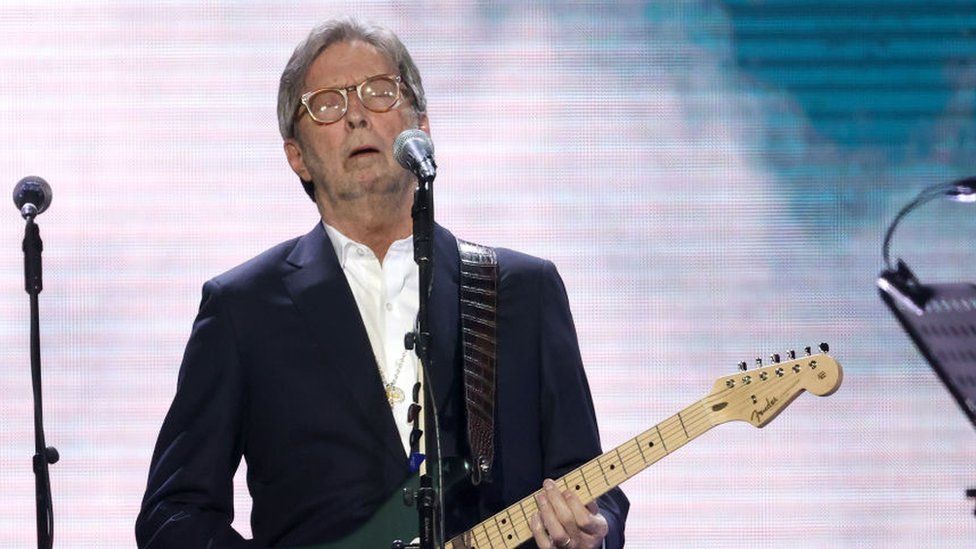British rock icon Eric Clapton has said he will not perform at venues that require concertgoers to be fully vaccinated against Covid-19.
UK Prime Minister Boris Johnson has said proof of vaccination must be shown at clubs and venues from September.
Clapton said he will not perform anywhere there is a “discriminated audience present”.
His announcement came through the social media accounts of an outspoken anti-vaccine activist.
The guitarist said he felt “honour bound” to make the statement, which was posted on Wednesday to the accounts of Italian architect and film producer Robin Monotti.
In May, Clapton said he had experienced a “severe” reaction to the AstraZeneca vaccine.
In a letter to Mr Monotti, he blamed “propaganda” for overstating the safety of the vaccine. He added that he feared the “disastrous” reaction would leave him unable to play music again.
Experts have stressed the benefits of vaccination outweigh the risks for the vast majority of people. Some people do experience mild to moderate symptoms after being vaccinated.
There is a very rare blood clot side-effect believed to be linked to the AstraZeneca vaccine, but the European Medicines Agency still recommends the jabs for all ages.
Clapton’s next UK show is scheduled for May 2022 at London’s Royal Albert Hall. The venue has said people may be asked to show their Covid status ahead of an event.
Clapton also has eight US concerts scheduled in September of this year. Vaccine proof is currently not required at most music venues in the US.
This is not the first time Clapton has taken a stand on Covid measures: he appeared on Northern Irish singer Van Morrison’s anti-lockdown song “Stand and Deliver” in December.
The song was one of three by Van Morrison to protest lockdown measures.
British-Sri Lankan singer MIA also made headlines in April 2020 after saying she would rather “choose death” than a vaccine. She later clarified her remarks to say she was “not against vaccines” but “against companies who care more for profit than humans”.
A recent Imperial College London survey looking at 15 countries found that concerns about side effects and testing are the primary reasons behind vaccine hesitancy.
Source: BBC



















































